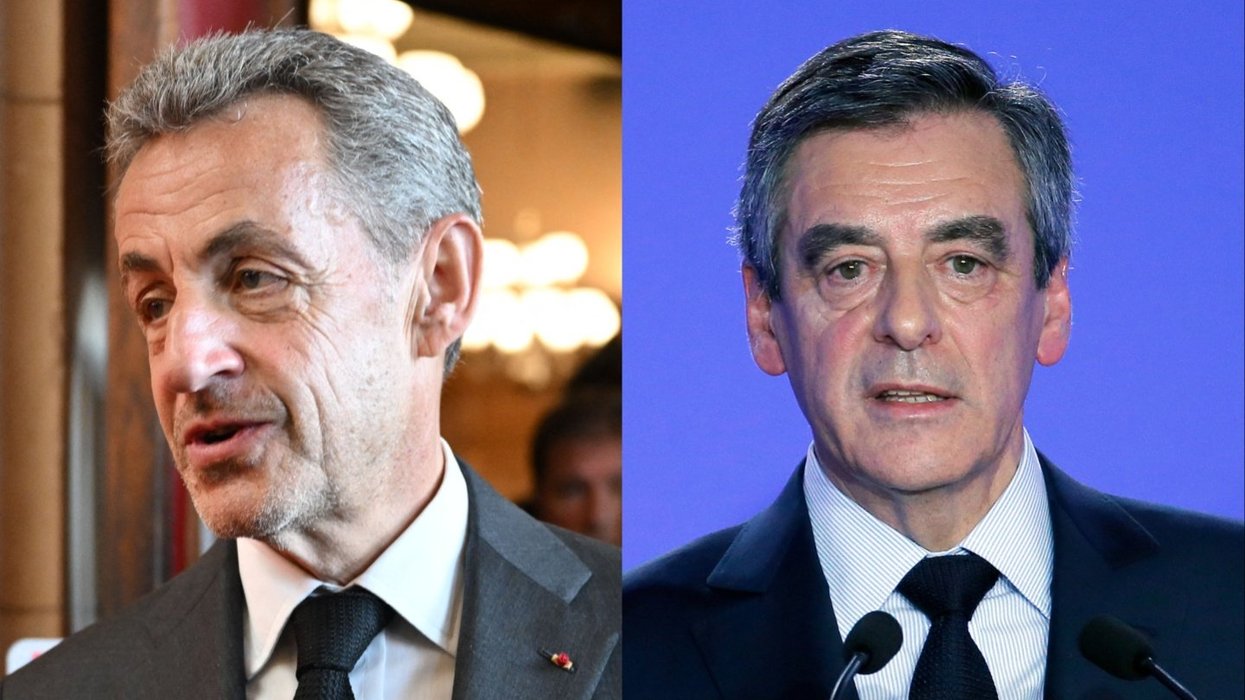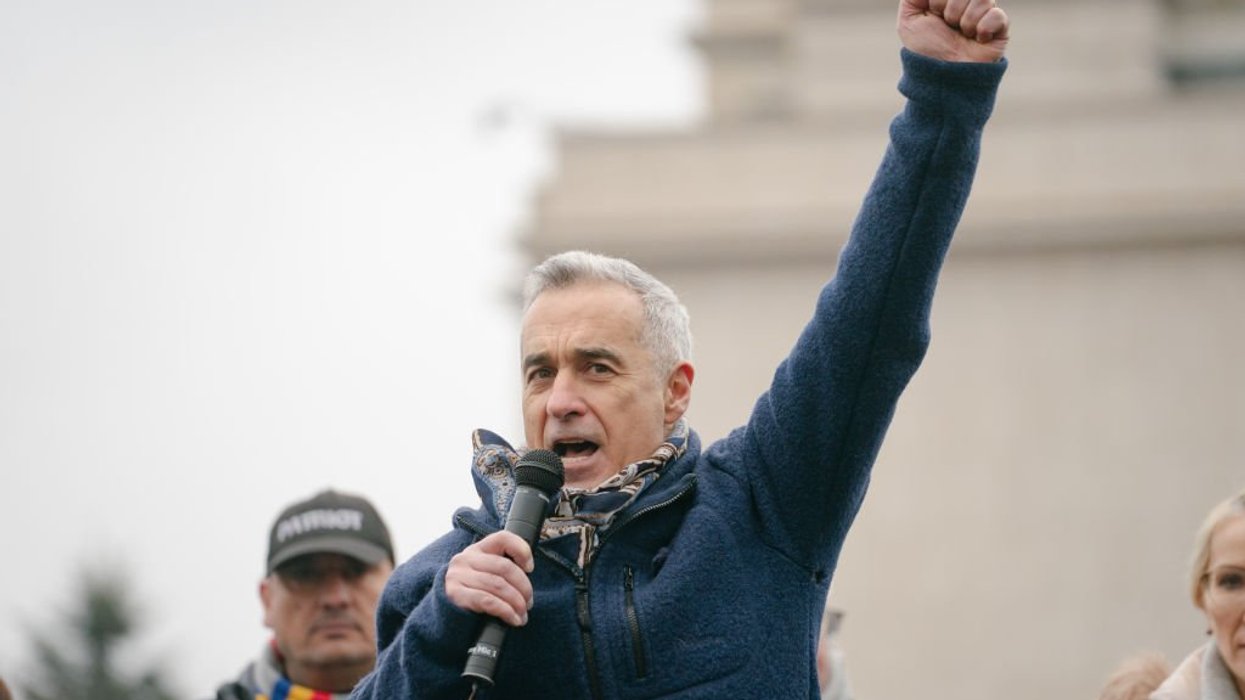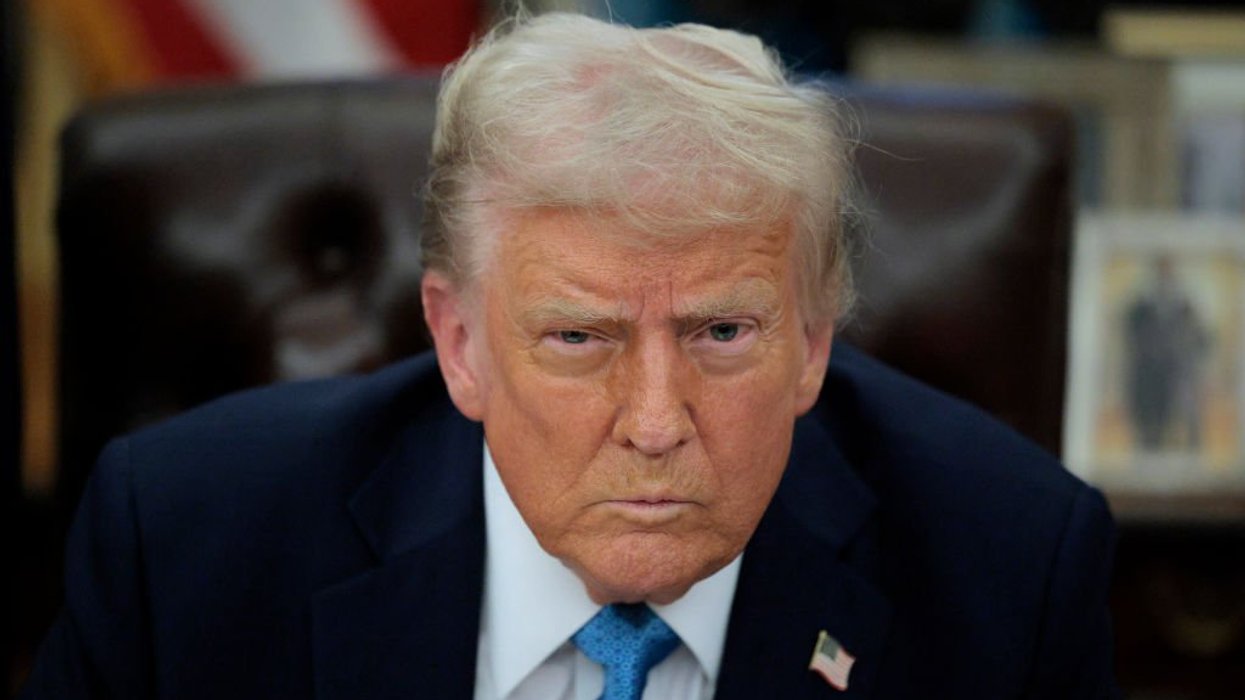GLENN: Jay Sekulow has been a frequent guest on the program and he has been a guy who has stood and his organization, the ACLJ, stood for a long time on freedom issues and stood against government tyranny. He is one of the main guys taking this case on with the IRS. Jay, welcome to the program.
SEKULOW: Hey, it's good to be with you, Glenn. Little known in fact, I had my first job out of law school was as a trial lawyer for the office of chief counsel, the Internal Revenue Service, and the tax‑exempt group was under our jurisdiction. So ‑‑
GLENN: Holy cow. So you need it inside and out.
SEKULOW: ‑‑ (inaudible) what's going on here and it's more than troubling.
GLENN: Okay. So tell me, you have 27 cases, and I know that one of them is not the national 9/12 group because national, when they started to file income tax and wanted tax‑exempt status, they got hassled like crazy and they just said it's not worth it and so it's really hurt them on fundraising but they just did not want the hassle from the government. They knew they were being set up. So you have 27 cases now. Tell us exactly what happened and why it's so troubling.
SEKULOW: Well, we got 27 cases. We were contacted early last year when the second round of questionnaires came from the Internal Revenue Service to these groups that were either 9/12 groups or TEA Party groups or conservative organizations and they started asking for donor information, membership lists, communications between members and members of the House and Senate or local legislative bodies and assemblies. And that's when we realized this has taken on a whole new dimension. So we simply and aggressively wrote back to the IRS. We started representing the groups and said we're not giving you that information, you're not entitled to it. We gave them the list of cases why they are not entitled to it going back to the 1950s, the NAACP cases and ultimately they were ‑‑ the questions were very aggressive and we maintained a very aggressive response. 15 of the groups have been granted status exemption. But there are still 10 pending and like you just mentioned, again, we had two that said it's not worth the hassle.
GLENN: Not worth it.
SEKULOW: Of waiting two and a half years with these intrusive questions coming in from the government. So the reaction is understandable: People got frustrated. But this was a coordinated effort in this attempt to lay the defeat of, quote, low‑level employees. I used to work for that office of chief counsel of the IRS. I was a lawyer there. The fact is the tax‑exempt group is what's called a specialty group. They are specially trained Internal Revenue Service agents, specially trained in tax‑exempt orgs. These are not low‑level bureaucrats and now we know there were meetings as high up as the chief counsel's office which is the highest level office inside the IRS. So that's nonsense. And by the way, the chief counsel and the head of the IRS are both presidential appointments.
GLENN: So let me ‑‑
SEKULOW: So they can't say this is an independent agency.
GLENN: So let me ask you this. Read the Nixon impeachment clause here. This is I think the first charge.
STU: This is out of Article II, Section 1
GLENN: Article II.
STU: Just skipping through it a little bit, but he has, acting personally and through his subordinates and agents, endeavored to obtain from the Internal Revenue Service in violation of the constitutional rights of citizens confidential information contained in income tax returns for purposes not authorized by law and to cause in violation of the constitutional rights of citizens income tax audits or other income tax investigations to be initiated or conducted in a discriminatory manner.
GLENN: Okay. That was against Nixon. Better, worse, or about the same?
SEKULOW: No, this is worse because this isn't only tax information and selective prosecution. This was then going after the people that supported these organizations by requesting the donor lists, something they are not even required to put in their tax return. In other words, the tax return itself, Glenn, for these nonprofits does not include a list of your donors because they're not entitled to it. Yet the IRS asked for that. That's more than Nixon did by a long stretch. And that's where the real difficulty is. We sent out a letter this afternoon or this morning to the IRS commissioner, the acting commissioner Steve Miller as well as the chief counsel demanding that the remainder of our clients be granted their exemption immediately. And I will tell you this: We are drafting complaints against the federal government and the agents involved right now. That's in process today.
PAT: Jay, the other thing this administration is trying to do is hide behind the fact that Douglas Shulman who was the commissioner of the IRS when this happened was a Bush appointee.
SEKULOW: Right.
PAT: Can they lay that at Bush's feet now or ‑‑ I mean ‑‑
SEKULOW: Of course not, and this is why. He was finishing up his point in term, I think he had six months left on it when he made that statement. They probably gave him incorrect information. Obviously they did. I don't think he was hiding the ball. I think he was based on the information he was told. What he was ‑‑ unfortunately what was actually happening was his people within the IRS themselves were engaged in this and the chief counsel is appointed by the president. So the chief counsel was an Obama appointee and the tax‑exempt head that previously worked with the FCC. So I mean, you can blame ‑‑ you can't blame this on Bush. These letters are coming out in 2012.
GLENN: Can they separate ‑‑
SEKULOW: They can't do it.
GLENN: Can he separate himself enough to say, "Oh, boy, they were just out of control"?
PAT: They are an out‑of‑control agency?
SEKULOW: Well, here's the problem. You know, you've got Jay Carney saying it's an independent agency which is factually not true and constitutionally not true. I mean, it's ‑‑ the IRS is the enforcement on the treasury. Treasury's an executive office function. So that's bogus. That's what they are going to try to do. The question will be whether the American people buy it. And I suspect even as you said, the mainstream media has picked this up and they are running with it. They realize that this is not just a tempest and a teapot. This teapot is boiling over.
GLENN: Okay. You said that you went back to the Fifties to see this kind of abuse. I have said since we were together as a people at the feet of Abraham Lincoln, I said this is a Civil Rights Movement, that we are going ‑‑ it will catch up to us, that we will begin to understand that the tactics used in the Fifties and in the late 1800s without the physical terror ‑‑
SEKULOW: Right.
GLENN: ‑‑ except for the stuff that happened with the labor unions, those same kind of tactics are being used and this is a Civil Rights Movement now. Would you say that's accurate?
SEKULOW: I think it is. And the government which, you know, unfortunately is going back to the same attempts they made to stifle these civil rights movement for African‑Americans, for black Americans in the United States led by Dr. King, they are using the same tactics. What did they ask the NAACP: Who is your members? Give us your mailing list. Who do you get money from? And the NAACP led by ‑‑ a legal charge led by Thurgood Marshall, who did a brilliant job of taking cases all the way to the Supreme Court establishing that government has no right to ask for that information. But it's like they don't learn. It did not work out very well for the government in the 1950s, especially these states that were trying to squash the Civil Rights Movement. And it's not going to work out very well for the administration in 2013 either.
GLENN: Okay. So Jay, what needs to happen and how can the average American help?
SEKULOW: Well, I think there's going to be two things that need to happen immediately. Number one, the groups that are pending need to get the recognition because as you've said, they are getting worn out. That needs to happen, period. So that we can get in play, and we're demanding that. Number two, the people that are ‑‑ that have done this need to be held accountable and that will take place in two forms: Congress will have extensive oversight hearings. These aren't just going to be photo opportunities. This is going to be the real deal and I expect many of them. And then as I said we're looking at right now federal court action against the individual agents that were involved in this and we'll see where that goes. So we're looking at that right now.
GLENN: Jay, I appreciate it. I don't know if this would fall with you, but we were targeted and nobody cared. We were targeted by the White House for smear campaigns and for boycotting of my business.
SEKULOW: Right.
GLENN: And it was Van Jones, it was Jim Wallis, it was the labor unions, and they were all the people that were in the White House at the time that it was going on. Is there any connection at all to things like that to this?
SEKULOW: Well, I don't ‑‑ you know, there's another aspect to this, Glenn, and that is it's not just conservative Christian groups that have been targeted here. There's Jewish conservative groups that also have been targeted. So it makes sense, and they were targeted because their position on Israel was counter to what the administration's has been. And I think you could tie what happened to you, what's happening now, what's happening to these conservative Jewish groups, it's all the same.
GLENN: It is.
SEKULOW: It is stifling dissent. And when you have the government trying to stifle dissent, that's really when ‑‑ it's bad enough when individuals do it, but it's a free country. Hey, I could disagree with you, you can disagree with me, but your government doesn't get to do that.
GLENN: Most people have ‑‑ they're worn out from this.
SEKULOW: Yeah.
GLENN: Mainly from this media, that media, they just don't care. And so the media will pick something up and then they will dismiss it and then they move on and then you never hear about it again and it just gets worse. Two questions: One, if this isn't corrected, how dangerous is the IRS and this administration?
SEKULOW: Unbelievably so because if they can ask these groups for this kind of information, I shudder to think what they can ask of individuals on audits as well. So I ‑‑
GLENN: Especially with healthcare.
SEKULOW: If this goes unchecked, you've sent the IRS into a version of the CIA into the American people. I mean, the intrusiveness of it would be unprecedented.
GLENN: And what do you expect to actually happen? Do you think this is ‑‑
SEKULOW: I think heads are going to roll, Glenn. I think that ‑‑
GLENN: Serious heads or little heads?
SEKULOW: People are going to be held accountable but the question is what the White House knew when they knew I, what the appointees, the political appointees knew. But the fact that the agents themselves thought they could do this and it was sign off on by group managers and probably chief counsel's office, that in itself raises a whole specter and I don't know if we know yet where those consequences will be.
GLENN: Jay, thank you so much.
SEKULOW: Thanks, Glenn.
GLENN: It's good to have you out there fighting.











